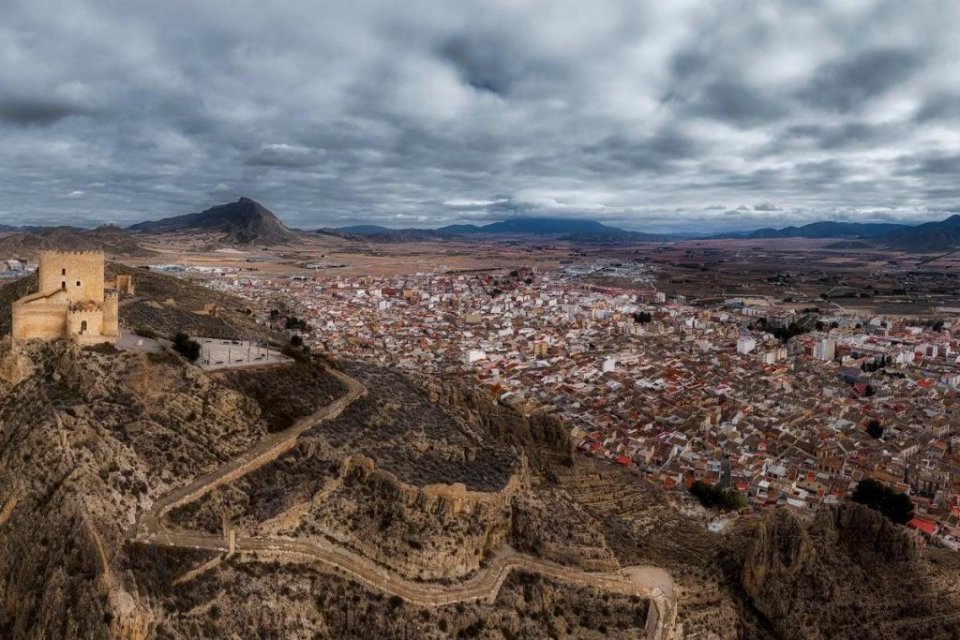A town in southeastern Spain has barred Muslim festivities from taking place in public venues, describing the move as a defence ‘against foreign customs’. It comes after recent anti-immigrant unrest in another town in the region.
The measure, passed by the local council of Jumilla in the Murcia region, has provoked strong criticism. The council is led by the right-wing People’s Party (PP) with backing from the far-right Vox party. In late July, it approved a change to local regulations preventing the use of municipal facilities for non-sporting events unless the activity is officially organised by the town hall.
Jumilla has around 27,000 residents and lies close to Torre Pacheco, where violent incidents occurred last month targeting people of North African origin after three Moroccan youths were accused of assaulting an elderly man. ALSO READ: Strong police presence, as fewer than 100 turn up for latest anti-migrant protest in Torre Pacheco.
Although the legislation does not explicitly refer to Islam, it effectively stops celebrations for Eid al-Fitr and Eid al-Adha — the two principal Muslim holidays, which around 1,500 local Muslims traditionally observe in civic centres or sports halls. Vox’s messaging made the intention explicit.
The amendment pledges to encourage ‘activities, campaigns, and cultural proposals that defend our identity and protect traditional religious values and expressions in our country’.
On social media platform X (see below), Vox stated: ‘Thanks to Vox the first measure to ban Islamic festivals in Spain’s public spaces has been passed. Spain is and will be forever the land of Christian people.’
Opponents of the measure say it contravenes Spain’s Constitution, which enshrines freedom of ideology, religion and worship. Spain’s central government – a coalition between the PSOE socialists and Sumar left-wing group – has said it will review the ban’s legality, watch for possible hate speech in Jumilla, and ensure religious freedoms are upheld.
The Spanish government’s Migration Minister Elma Saiz said on Friday that the ban was ‘shameful’, and urged local leaders to ‘take a step back’ and apologise to local residents.
Saiz told Spain’s Antena 3 broadcaster that policies like the ban in Jumilla harm ‘citizens who have been living for decades in our towns, in our cities, in our country, contributing and perfectly integrated without any problems of coexistence’.
Mounir Benjelloun Andaloussi Azhari, president of the Spanish Federation of Islamic Organisations, condemned the ruling to El País, calling it ‘Islamophobic and discriminatory’ and adding: ‘They’re not going after other religions, they’re going after ours.’
Speaking about the recent surge in racist incidents and rhetoric, he said: ‘We’re rather surprised by what’s happening in Spain. For the first time in 30 years, I feel afraid.’
Miguel Tellado, the PP’s secretary-general, said the party respected all faiths and that the policy was under evaluation, though he stopped short of rejecting it outright.
An editorial in El País titled Jumilla: institutional Islamophobia described the decision as ‘an attack on fundamental rights and a distortion of Spain’s cultural identity, which historically includes Muslim and Jewish influences’.
Christianity — predominantly Roman Catholicism — remains Spain’s majority religion and retains the most institutional influence.
On Thursday, Spain’s Catholic bishops warned that limiting worship ‘violated the fundamental rights of every human being, and do not affect just one religious group, but all religious denominations’, as well as those with no faith. They said: ‘Implementing these restrictions for religious reasons is discrimination that cannot occur in democratic societies.’
For centuries, Spain was ruled by Muslims, whose influence is present both in the Spanish language and in many of the country’s most celebrated landmarks, including Granada’s famed Moorish Alhambra Palace. Islamic rule ended in 1492 when the last Arab kingdom in Spain fell to the Catholics.
Subscribe to the Weekly Newsletter from Spain in English.
🇪🇸 Jumilla hace historia.
Gracias a @vox_es se aprueba la primera medida en España que impide celebrar fiestas islámicas en espacios públicos.
⁰¡España es y será siempre tierra de raíces cristianas!📰 https://t.co/bVVV6ImEY6 pic.twitter.com/s6ntuo1RAQ
— VOX Murcia (@Vox_Murcia) August 6, 2025
La tensión generada por la prohibición de los actos sociales, culturales y religiosos en el centro deportivo municipal está en boca de los vecinos de Jumilla.
Un tema que creen puede poner en peligro la buena convivencia. En Jumilla conviven 72 nacionalidades distintas. pic.twitter.com/FjBAytDRbP
— RTVE Murcia (@RTVEMurcia) August 8, 2025
The High Representative @MiguelMoratinos is shocked by the decision of the City Council of Jumilla to ban religious rituals and/or celebrations in municipal facilities in the municipality of Jumilla, region of Murcia, Spain.
🔗 Full Statement ⬇️https://t.co/qAzxMytPiF pic.twitter.com/Bij6SpA2ug
— UNAOC – United Nations Alliance of Civilizations (@UNAOC) August 8, 2025
Click here to get your business activity or services listed on our DIRECTORY.


